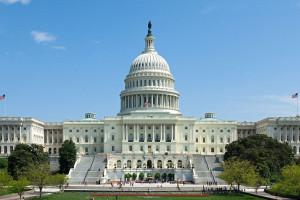SENATE HEARING: Russia, Ukraine, and U.S. Policy – Prepared statement by Stephen Sestanovich

Senate Committee on Armed Service
April 28, 2015
Russia, Ukraine, and U.S. Policy
Prepared statement by
Stephen Sestanovich
George F. Kennan Senior Fellow for Russian and Eurasian Studies Council on Foreign Relations
Kathryn and Shelby Collum Davis Professor of International Diplomacy School of International and Public Affairs, Columbia University
Chairman McCain, Senator Reed, members of the Armed Services Committee: Thank you for today’s opportunity to discuss Russia’s confrontation with the West over Ukraine. This is a subject of fundamental importance for the future of European-and indeed global-security.
The past year has been a frustrating one for both policymakers and policy analysts-in fact, for anyone trying to anticipate Russian moves. Time and again, many of us failed to gauge Vladimir Putin’s motives. Often we thought he would be ready to unwind the crisis when he was actually about to double down. He made promises that he did not keep and created a powerful case for Western sanctions. Putin has personally antagonized European and American leaders in a manner that has few precedents in the history of Russia’s relations with the West.
After a year like this, where do we stand and what should we think? I’d like to focus on four issues that have produced considerable debate. They bear directly on choices that your committee must make.
First is the question of Putin’s aims and calculations. I often hear it said that he cares more than we do about Ukraine. Because he feels that the stakes for Russia are high, he may be hard to deter.
Second is the effectiveness of sanctions. Many say these have not worked well. Putin, we hear, will not be swayed by economic pressure; he has convinced the public that Russia must not be pushed
around.
A third much-debated issue has to do with helping Ukraine militarily. Giving arms, it is said, will only escalate the fighting-and bolster Putin’s claim that the West is seeking to bring Russia down.
Finally, a fourth fear, about where this confrontation is heading. Many people worry that Putin will turn against other neighbors, especially our Baltic allies.
There is a kernel of truth in each of these claims. But they do not tell the whole story. To develop the right strategy, we need a fuller picture.
First, on the nature of Putin’s commitment: we should neither minimize nor exaggerate it. When separatist forces were about to be defeated by the Ukrainian army last summer, we saw that Putin was not willing to let that happen. But he was also unwilling to deploy large Russian units in Ukraine to defend the separatists.
Why do he and his associates lie about having troops there, and about the casualties they have taken? Because neither foreign nor domestic audiences would be happy with the truth.
Putin’s actions to date do not tell us what his future aims will be. Saving the separatists-and himself-from defeat does not mean he is prepared to back them as they try to take more territory. We know they want to do so; they are open about it. But we should not assume Putin will pay any price to support them.
Second, about sanctions. Putin and sophisticated Russian economists are not of one mind about the impact that sanctions have had. Some call it marginal; others consider it significant. But no one denies that sanctions have had some impact, or that over the past year Russia’s economic outlook has deteriorated. The only question is whether sanctions affect Russian actions on the ground.
I believe sanctions do affect policy. Putin may well hope that, if fighting in eastern Ukraine stays below the peaks it reached last year, the West will start to roll back sanctions. But he must also know that, if fighting increases, new sanctions are likely and a rollback will be impossible. It is hard for me to believe that this awareness does not constrain Russian support for separatist leaders.
Third is the much-disputed issue of whether and how to support the Ukrainian military. A sudden infusion of Western arms will not turn the tide when fighting is in full swing; it might even lead Russia to escalate its own involvement. But the problem that the United States and its allies face now is slightly different. Their primary goal should be to deter a new wave of violence and, in particular, an effort by separatists to expand their holdings.
This is a goal that Western military aid can help to achieve. Without it, separatist enclaves in eastern Ukraine will grow, the country’s political and economic disintegration will continue, and Russia’s involvement will increase. We have to be smart about strengthening Ukraine’s army, and we have to be careful. But a Ukraine that can defend itself is essential to a strategy of re-stabilization. Expecting the conflict in the east to freeze itself is wishful thinking.
Finally, about where Putin will strike next: his Ukraine policy is a threat to the security of NATO members. The alliance has been right to reinforce and reassure front-line states, and it must do more. We cannot afford the luxury of unpreparedness.
All the same, as long as the Ukrainian crisis continues, my judgment is that Russian military pressure against other neighbors is remote. Being bogged down in Ukraine makes it harder for Putin to pick other fights. Yet the unfolding conflict in Ukraine will surely affect his calculus further down the road. If Putin emerges the victor, if a pro-Western government is kept from succeeding, if Russia’s nationalist mood deepens, if the rich and powerful democracies of Europe and the United States fail to stay the course-if this is where we end up, Putin will draw his own conclusions. The Putin we face in the future could be even more dangerous than the one we face today-both for his neighbors and for us.
